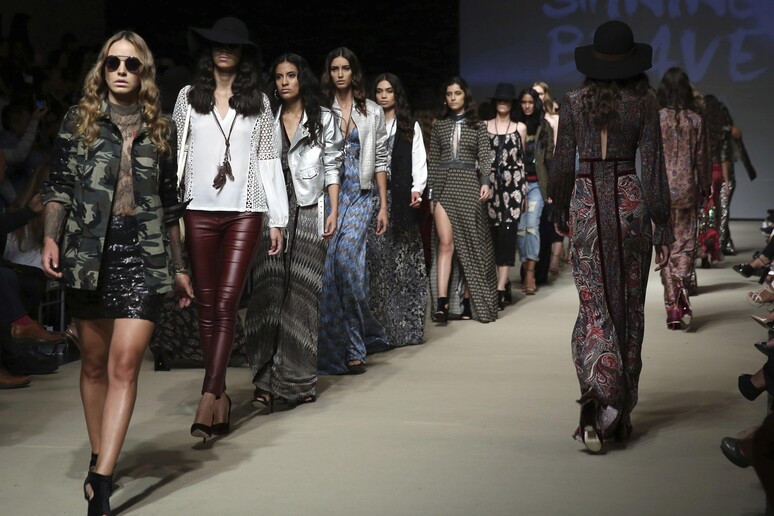Italian Industry Minister Carlo
Calenda spoke to students at Rome's LUISS University on Tuesday,
praising the country's fashion industry but adding that the
sector still requires development.
"(The industry) suffers from a lack of coordination and a
system economy," Calenda said.
"The concept of quality must go beyond that of the product,
adding sustainability, traceability, and the cultural context in
which the product is produced, which is our manufacturing
capability," he said.
The talk was part of a roundtable discussion on the fashion
industry in the first of a series of talks titled "Appointments
with Ingenuity", sponsored by LUISS in cooperation with the
non-profit Comitato Leonardo Italian Quality Committee.
Calenda said owner nationality of a "Made in Italy" brand is
less important than where the product is produced.
"We've seen many brands bought by foreign companies. There's
nothing more mistaken than saying that 'Made in Italy' is being
sold out. An Italian company is one that works, produces, and
hires in Italy. Ownership is irrelevant. The stories of the
brands that have been bought demonstrate they've increased jobs,
margins, productivity. It's capital that they want to invest in
goods produced in Italy. Provincialism in this sector never
pays," he said.
"We owe a lot to fashion and textiles. This industry was the
first to be hit by globalization. Politicians are wrong to shame
fashion as something that's only for the rich; there are many
small and medium-size businesses in the supply chain," Calenda
said.
Comitato Leonardo President Luisa Todini said Italy is the
third-largest textile and clothing exporter worldwide, with
exports worth 30 billion euros.
"It's a 53-billion-euro sector with 47,000 companies and
400,000 employees. But the challenges of the future are still
defending the brand and the fight against counterfeiting,"
Todini said.
"The new digital frontier of e-commerce already generates
three billion euros for Italian fashion companies. It's a wave
that many companies have managed to ride, but there's still a
gap to bridge, especially with small- and medium-size
businesses. That's why the government's measures through the
national Industry 4.0 plan are very welcome," Todini said.
ALL RIGHTS RESERVED © Copyright ANSA











